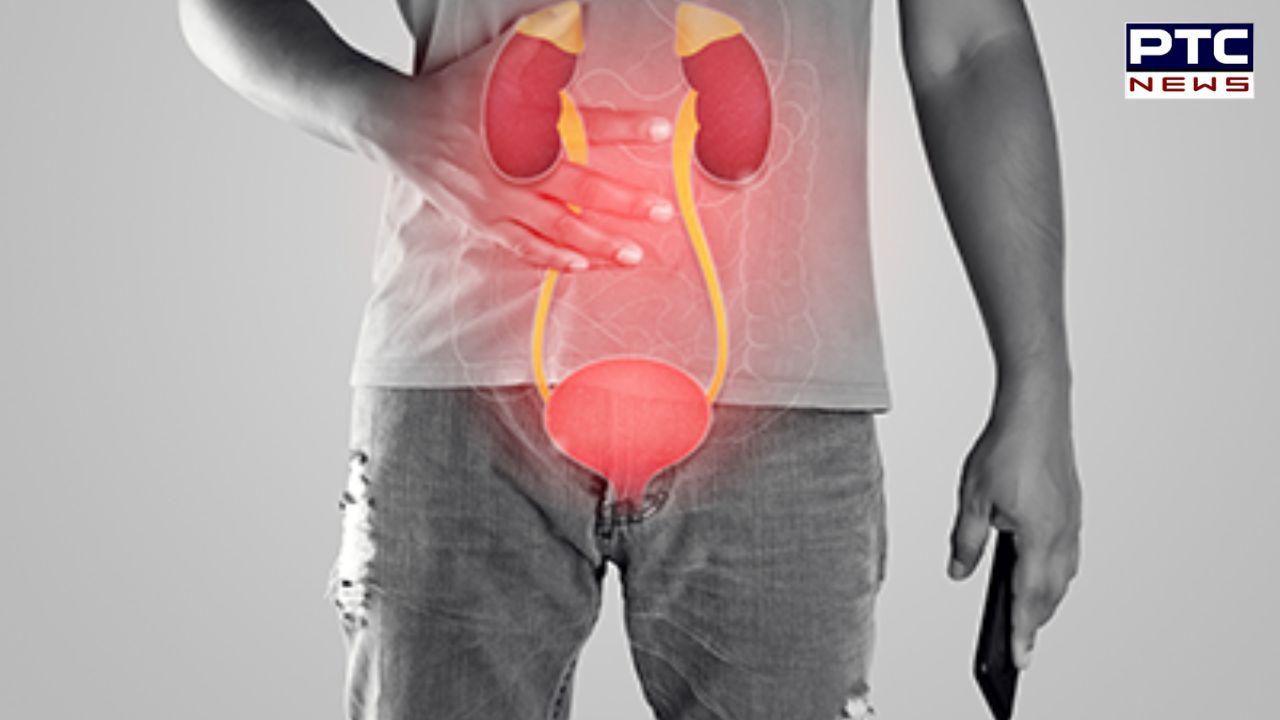- February 23, 2025
- Updated 2:22 am
What is the cause of Sushil Kumar Modi’s death, urinary bladder cancer?
PTC News Desk: Sushil Kumar Modi, the former deputy chief minister of Bihar, passed away on Monday following a six-month battle with stage 2 bladder cancer. In addition to disclosing his diagnosis, the 72-year-old leader of the Bharatiya Janata Party tweeted in April on social media platform X that he will not be contesting the current Lok Sabha elections.
I have spent the last six months fighting cancer. I think the timing is right to tell others about it. I will be unable to participate in the Lok Sabha elections in any way. I have informed Prime Minister Narendra Modi of everything. He wrote, “I will always be appreciative and committed to the nation, Bihar, and the party.
What is cancer of the urinary bladder?
Urothelial carcinoma, the term for bladder cancer, is a specific kind of cancer that arises from aberrant overmultiplication of the urothelial cells lining the bladder. Bladder cancer is curable since it is typically discovered in its early stages.
Experts state that 75 per cent of instances of bladder cancer may even recur after treatment, therefore patients with this fatal illness should be diligent in keeping up with their doctors. Bladder cancer begins in the lining of the bladder.
Bladder cancer develops when specific cells in the bladder lining undergo mutations, turning into aberrant cells that proliferate and become bladder tumors. If left untreated, bladder cancer spreads from the walls of your bladder to the lymph nodes that are close by and eventually to other parts of your body, such as the liver, lungs, or bones.
According to statistics, males are four times more likely than women to develop bladder cancer, making it the fourth most prevalent cancer to strike them. The Bladder Cancer Advocacy Network states that because women mistake blood in the urine for common gynecological problems and the possibility that it may only be discovered at an advanced stage, they are less likely to pay attention to the earliest and most significant sign of bladder cancer: blood in the urine.
According to doctors, bladder cancer usually strikes those who are 55 years of age or older. When bladder cancer is diagnosed, the average age of the patient is 73.
Symptoms and indicators
- In addition to blood in the urine, the following are the most common signs of bladder cancer:
- Burning and agony when urinating
- Urging a lot and needing to urinate frequently
- Having problems urinating when the flow of urine is irregular or weaker than normal
- Bladder infections that never go away
Why does bladder cancer occur?
- Physicians claim they are unsure of the precise cause of some bladder cell mutations that result in cancer. But some risk factors are as follows:
- Smoking cigarettes doubles your chance of bladder cancer.
- Bladder cancer risk is also increased by radiation therapy used for cancer treatment.
- Additionally, several chemotherapy drugs raise your risk
- Research indicates that there may be a higher risk for those who work with specific chemicals found in paint, rubber, leather, dyes, some textiles, and hairdressing supplies.
- A person may be more likely to develop squamous cell carcinoma if they frequently experience bladder infections, bladder stones, or other urinary tract infections.
Recent Posts
- Crown of goddess Kali, gifted by PM Modi, stolen from temple in Bangladesh
- Hezbollah leader survives assassination attempt amid Israeli strikes that kill 22 in Beirut
- ਕ੍ਰਿਕਟ ਦੇ ਬਦਲੇ ਨਿਯਮ, ਹੁਣ ਇਸ ਕੇਸ ‘ਚ ਦੁਬਾਰਾ ਨਹੀਂ ਮਿਲੇਗੀ ਬੈਟਿੰਗ, ਮੰਨਿਆ ਜਾਵੇਗਾ
- ਸਚਿਨ ਤੇਂਦੁਲਕਰ ਦੇ ਬਰਾਬਰ ਪਹੁੰਚੇ ਜੋ ਰੂਟ, ਪਰ ਵਿਰਾਟ ਦੇ ਇਸ ਰਿਕਾਰਡ ਤੋਂ ਅਜੇ ਵੀ ਦੂਰ
- Ratan tata death: ਸਿਰਫ ਵੋਲਟਾਸ ਹੀ ਨਹੀਂ, ਸਵੇਰ ਤੋਂ ਰਾਤ ਤੱਕ ਤੁਹਾਡਾ ਕੰਮ ਟਾਟਾ ਦੇ ਬਿਨਾਂ ਨਹੀਂ ਚੱਲ ਸਕਦਾ
